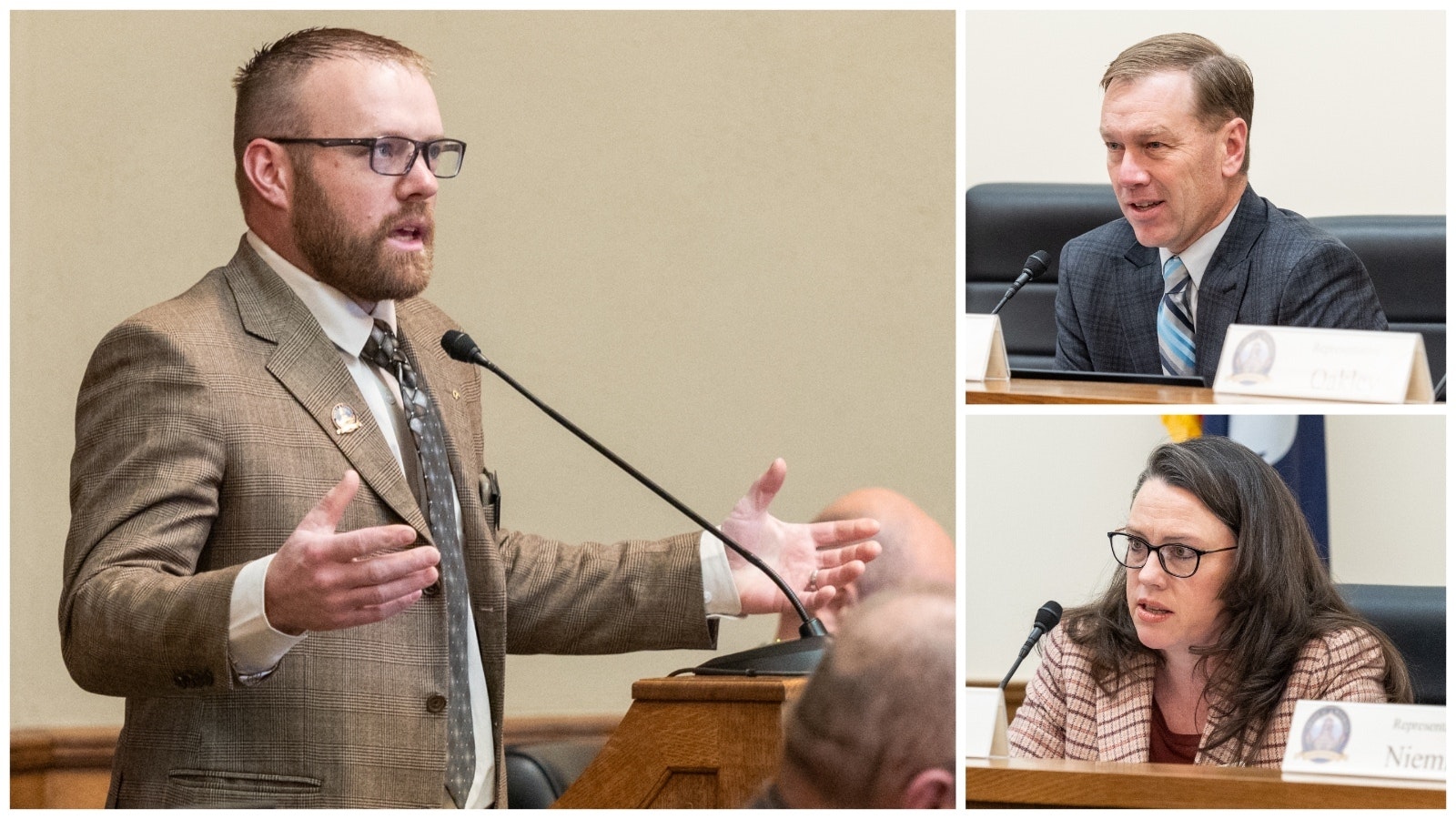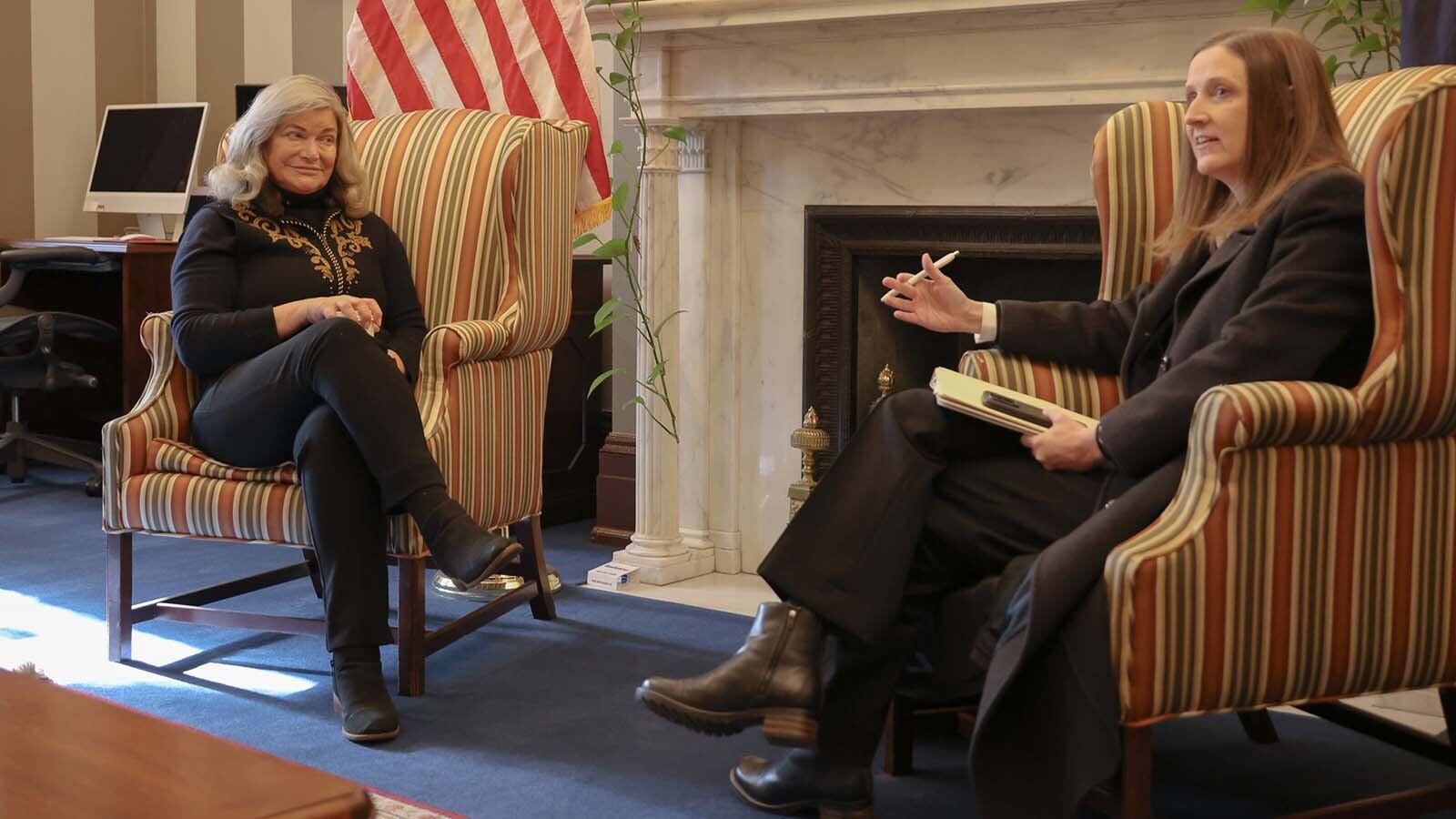A Wyoming bill that would require convicted sex traffickers to register as sex offenders cleared a committee hearing Wednesday and now must survive the House of Representatives to become law.
The House Judiciary Committee advanced Senate File 30 to the House floor Wednesday, where it must survive three readings and a possible consent vote from the Senate to pass the Legislature.
The bill would require people guilty of human sexual or labor trafficking to register as sex offenders for life.
It would require people who trick or coerce adults into sexual servitude to register as sex offenders for at least 10 years, and people who do the same for minors to register for at least 25 years.
The Sexual Abuse Question
The bill also would change the state registry’s approach to third-degree sexual abuse.
Wyoming’s registry law now requires lifetime registration for some third-degree sexual abusers, including those who were older than 20, more than four years older than a 16- or 17-year-old victim, and who held a position of authority over the victim when they committed sexual intrusion.
The bill would separate that out, so that the convict could petition to be off the registry after 25 years if his victim was fewer than eight years younger.
‘Arbitrary’
That’s not enough, one adamant witness told the House Judiciary Committee on Wednesday.
Jason Hanson, a constituent, testified via Zoom.
He protested keeping the eight-years-older third-degree sexual abusers on the lifetime registry, saying worse offenders get to stay on the 25-year registry.
“This was a third degree, low-level offense. It has 16- to 17-year-old victims,” said Hanson. “But had any of these offenders, no matter what age they are, chosen younger victims or their own children as victims, they would have been charged with first- or second-degree offenses that are only monitored two times a year for 25 years.”
For example, a legal guardian who inflicts sexual intrusion on a minor in his care can petition to be taken off the registry after 25 years.
An adult in a position of authority who inflicts sexual intrusion on someone 15 or younger can also petition to leave the list after 25 years.
Hanson, who said he was convicted of third-degree sexual abuse after having a “consensual” relationship with a 17-year-old girl when he was her 26-year-old store manager, called the registry “arbitrary” and said Wyoming could lose a court challenge over it.
“Stop making these low-level offenders register twice as often as the more severe level offenses,” said Hanson. “We’re only asking for a chance to ask a judge for a relief from duty to register someday. To be … free from absolute arbitrary power and cruel and unusual punishment.”
Not Now
Hanson urged the House Judiciary Committee to keep an earlier amendment by the Senate Judiciary Committee, in which the latter had put both kinds of third-degree sexual abusers (on both sides of the eight-year age gap) on the 25-year registry.
The House Judiciary Committee did the opposite, reverting its bill to its original form so that older abusers would still have to register for life.
Rep. Ember Oakley, R-Riverton, told Hanson that he has a point, but the sex-trafficking bill isn’t the place to address it.
“You realize, doing these little things in piecemeal isn’t effective, it doesn’t work. Then we don’t have cohesive statutes,” she said. “If we want to look at registration (mismatches) we have to do that comprehensively.”
Oakley said the Judiciary Committee can try to overhaul the registration requirements in the future if it wants to.
Rep. Barry Crago, R-Buffalo, bristled at Hanson’s use of the word “consensual,” saying state law defines that situation as non-consensual. But he agreed with Oakley that Hanson has a point about inconsistencies in the registry.
“We need to spend more time on the whole with sexual registration stuff,” said Crago. “Just trying to fix one problem for one person – I don’t think that’s a good way to legislate.”
Rep. Jeremy Haroldson, R-Wheatland, who is also a pastor, said he’s struggled to help sex offenders get back on their feet because of some of the registry’s requirements. He agreed it’s time for a deeper dive into the statutes.
Roll Call
Two committee members voted against the bill and the other seven voted in favor.
The nays were Reps. Karlee Provenza, D-Laramie, and Mark Jennings, R-Sheridan.
The ayes were Reps. Ken Chestek, D-Laramie; Crago; Haroldson; Tony Niemiec, R-Green River; Oakley; Rachel Rodriguez-Williams, R-Cody; and Committee Chair Art Washut, R-Casper.
Clair McFarland can be reached at clair@cowboystatedaily.com.





